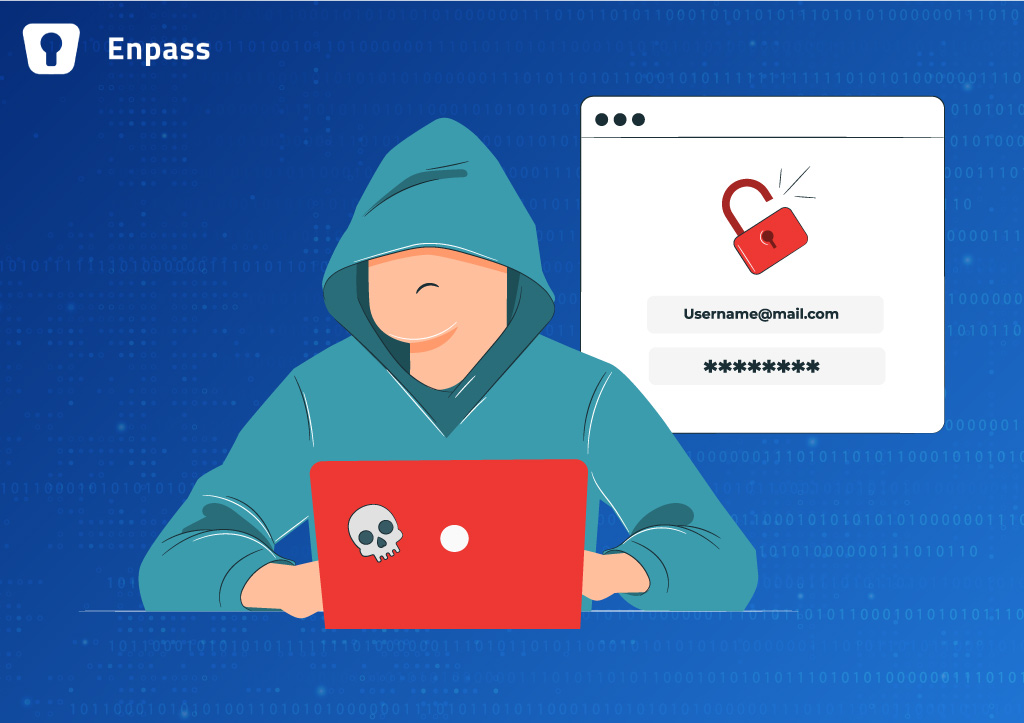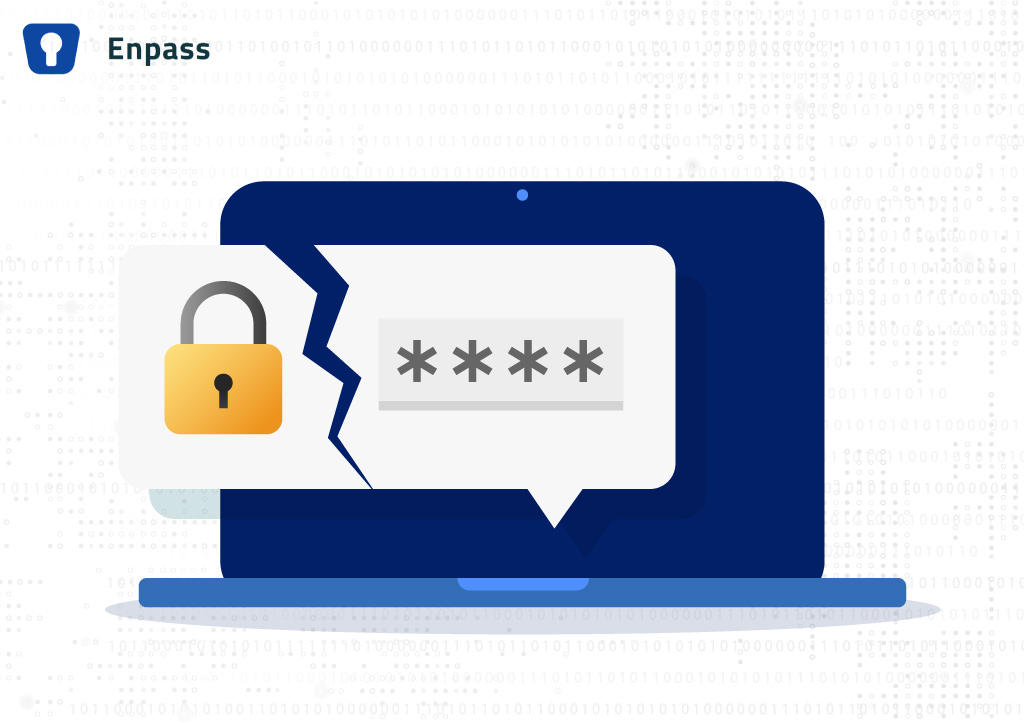
Did you know that 51% of people use the same passwords for work and personal accounts? While it makes remembering the password easier, it also makes it that much easier for the hacker to obtain all your information.
With technological evolution, hackers have also updated their skills to steal information. They use tricks like phishing attacks, dictionary, and password spraying attacks, convincing you to download malware, and even shoulder surfing or basic guesswork to get to your credentials.
The best defense against a hacker is setting strong and unique passwords for all of your accounts. However, creating and remembering several complex and unique passwords is tedious. This is where a password manager app comes in. Rather than face the challenge of managing all your passwords, a password manager app can keep your accounts and information safe and away from prying eyes.
But how exactly do hackers steal passwords? Read on to understand the various tactics they use.
4 Common Ways Hackers Steal Passwords

1. Phishing Attacks
Phishing emails or messages are the most commonly used methods to steal data and information across the globe. The hacker sends an email that often includes a link asking the user to log in or provide personal information. The link mimics the real portal closely; upon entering details, the portal may either close unexpectedly or ask to retry. At this point, the information is already extracted. Phishing emails look trustworthy or demand immediate action.
2. Malware
Phishing emails and malware sometimes go together, but malware is ever-present on the internet. Malware is a malicious software program hidden within mobile apps, advertisements, and emails. An accidental click or opening of such malware-filled emails can give hackers access to private information.
In some cases, malware can also feature a keylogger. A keylogger records the device’s keystrokes, allowing access to patterns or passwords. These can be downloaded onto the device by accidentally opening and clicking malicious links.
3. Shoulder Surfing And Basic Guesswork
Even with facial recognition and fingerprints on the rise, passwords will always be a common security tool within larger organizations. As the name suggests, shoulder surfing can happen when someone looks over at your device when you type your password. This may not happen at the office. However, you may fall victim to shoulder surfing at a cafe, airport, or remote work area. Hence, staying vigilant when not in secure locations and when accessing sensitive data is important.
Basic guesswork can happen when the passwords are common between accounts or when the hacker has a partial clue of the password. This way, it is easier for the hacker to follow a pattern, compare phrases, and try the password on different accounts until they find a way.
4. Dictionary and Brute Force
Or he may not need to steal your password at all. In the world of hacking, a dictionary is a compiled list of the most commonly used password combinations. These include classic and common ones such as ‘123456’, ‘password,’ and others. Each year, a list of the most common passwords is released, and if you find yours among them, it’s time to change it immediately.
Such weak passwords and their combinations are easy targets for hackers. Besides dictionary hacks, hackers also try brute force, a method where they stuff previously breached credentials into automated software. This software then tries these passwords across many websites to find a match. This way, if you were to use the same password for multiple websites, the hacker could have access to all these websites.
How Can You Safeguard Your Passwords?
Well, create strong passwords and memorize them, and leave no trace. Sounds difficult, right? Yes, it is. And hence password managers exist.
Password manager apps eliminate the hassles of storing or using passwords across different websites. You no longer need to remember long, complicated passwords and risk a security breach. A password manager app can be crucial to an organization’s security arsenal.
1. Detects Malicious Links
Password manager applications prevent any information from being disclosed in phishing or malware attempts. A password manager’s autofill feature enters the right credentials in a way that does not reveal details to the person entering the details or anyone who might be spying. Password managers identify URLs before auto filling information. The slightest change in any alphabet, number, or symbol, and the password manager will not enter the credentials, alerting you to a possible threat.
An added benefit of autofill is that it prevents shoulder surfing or guesswork since it automatically fills in the data, and the people around you cannot see it.
2. It Generates Strong Passwords
Using a different password for each website and remembering them may be a hassle for you, but not for password managers. They use secure cryptography algorithms to create unique and complex passwords.
The passwords can also be modified with numbers and symbols based on specific requirements of websites. This keeps you safe from dictionary or brute force attacks since the passwords are too unique and complex for the algorithms to crack.
3. Keeps constant watch on password health
Password managers can notify users of weak, duplicate, old, unused passwords. This way, users can update poor passwords with newer, secure passwords through the password manager app.
4. Sends Alerts About Leaked or Compromised Passwords
A good password manager goes a step further and alerts you if your password has expired, leaked, or compromised. It routinely checks the strength of your password and ensures that no password is repeated. That way, you have complete control over your accounts and can ensure no one can get in.
How Enpass Helps Protects You From Hackers
Password managers are great for creating strong and complex passwords. They conduct regular breach monitoring or password audit to alert you of leaked or compromised passwords or nudge you to update your password if you haven’t changed them in a while.
What’s more, if you are a business, a lot of the password managers out there won’t be suitable for you. The reason for that is most of them store the password and other sensitive data on their clouds, i.e., the service provider’s own cloud. Now, as a business, this can raise compliance issues.
An offline password manager like Enpass can help you with this. Enpass is a solution that can be deployed locally on your devices. This means no data ever leaves your systems or IT infrastructure. If you want to sync and access your data across multiple devices, you can use your preferred and trusted cloud storage services like Microsoft OneDrive/SharePoint to do so. By doing this, your passwords vaults stay on the cloud of your choice adding double security to your data. Any bad acter, wants to get access to your vault has to first breach into your cloud account. Not an easy task….Even in this, Enpass does not store any of your data.
Your data is fully encrypted with AES256 with 320,000 rounds of PBKDF2-HMAC-SHA512. Enpass is a zero-knowledge solution and 100% compliant for enterprises and businesses.
Enpass is a fully-loaded password management solution, including password generator, autofill, breach monitoring, password audit, etc. It can alert you to possible breaches, of expired or compromised passwords so that you can change them when needed.
What’s more, Enpass is free to try, and you can take it for a spin by simply signing up from here.